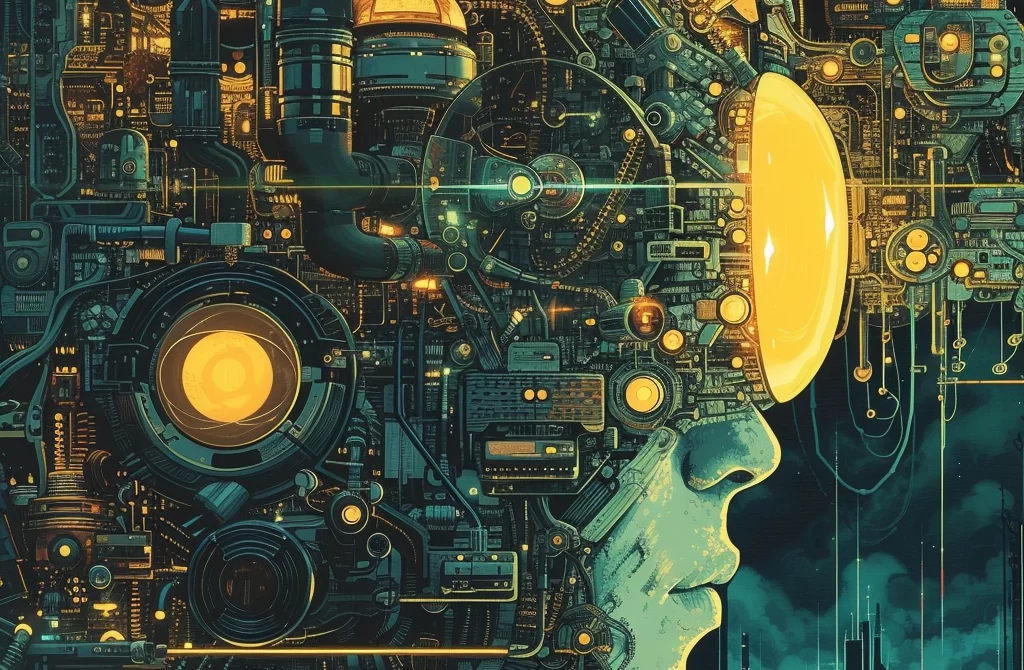Ray Kurzweil, prominent futurist and inventor, recently joined Peter Diamandis and Salim Ismail for a thought-provoking discussion on artificial intelligence, human longevity, and the future. Kurzweil shared insights from his 60+ years of experience in AI, outlining a future where AI enhances human intelligence and enables dramatically extended lifespans.
Some key insights from Ray Kurzweil’s discussion
- AI capabilities are advancing exponentially and will ultimately enhance human intelligence.
- Simulated biology and medical advancements could enable dramatic longevity extensions within decades.
- Boundaries between humans and machines will blur as AI integrates deeper into our lives.
- Maintaining ethical approaches will be critical to harnessing incredibly powerful new technologies.
- Despite risks, we have many reasons to be optimistic about the future.

The Exponential Growth of AI
Kurzweil reflected on the early decades of AI when progress was uncertain: “In the early years it was really not clear that neural nets could do anything successful.” However, he sees recent advances in large language models as a definitive breakthrough, noting “That is showing now that this is really the path to artificial general intelligence.”
In Kurzweil’s view, today’s AI capabilities are expanding exponentially: “Every six months it’s completely revolutionary. It’s going to change everything we do.” He cited examples like GPT-3 and tools that can re-write text in different styles as demonstrations of the rapid pace. While some fear AI may one day surpass human intelligence, Kurzweil sees it differently: “It’s not us versus the intelligence we’re creating. It’s adding AI to our own brains.”

Simulating Biology to Extend Longevity
Kurzweil also discussed innovations that could enable dramatic extensions of the human lifespan. He explained that in the 2020s, “people who are diligent about their health will be able to reach what I call ‘longevity escape velocity’…where we can actually get to two years per year of additional life expectancy.”
A key driver of this will be simulated biology, where we can rapidly test medical therapies on digital models. As Kurzweil noted, “We’re ultimately going to be able to use biological simulation of humans to replace human testing. We’ll test new drugs on a million or more humans, simulated humans in just a few days.” This will accelerate discovery and allow us to cure diseases like cancer far more quickly than traditional medical testing.

Merging Minds and Machines
While some fear competition from intelligent machines, Kurzweil believes AI will become seamlessly integrated into our lives: “Our devices are already an extension of our intelligence. As AI advances, the boundary will blur further.” He predicted that by the 2030s, “most of our thinking will be in the computer part.” With our thinking distributed across networked systems, Kurzweil believes physical mortality may become optional: “It’d be actually very hard to actually exit the world because every part of our thinking will be in the cloud.”
If you enjoyed this summary of this interview with Ray Kurzweil and Peter Diamandis, check out the entire interview here:
Cautious Optimism About the Future

Throughout the wide-ranging discussion, Kurzweil maintained an optimistic stance regarding the future, while acknowledging risks. He highlighted positive trends across areas like poverty reduction, literacy, and access to information. However, Kurzweil noted every technology has downsides that must be addressed proactively.
Regarding the risks from technologies, he emphasized that “We have to be very mindful of avoiding these types of perils.” Maintaining an ethical, forward-thinking approach is critical as progress accelerates. Kurzweil believes that if we apply new capabilities wisely, the future is bright: “I do think things are moving in a positive direction. And this new book, I’ve got 50 graphs showing all of the things we care about are moving in the right direction.”
Want to read more important interviews about AI? Check out our recent story with UK Prime Minister Rishi Sunak interviewing Elon Musk on the perils of AI.
